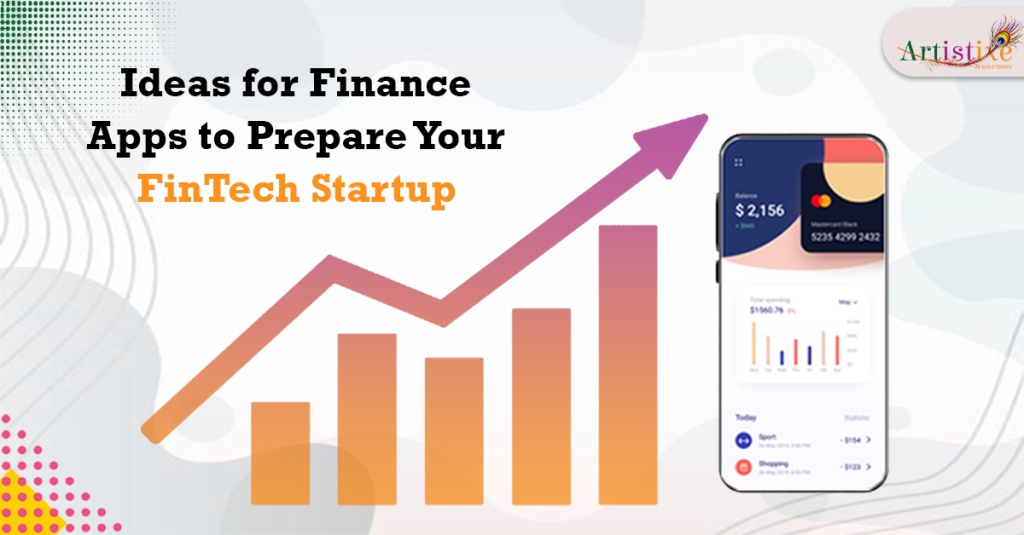Finance Apps investors can be pilot customers, technical and product advisors, distribution partners, strategic partners engaged in product development, or acquirers of financial technology companies. It is no secret that financial institutions are attracting IT companies to automate their traditional ways of doing business – saving, spending, borrowing, investing. This attracts funding that helps companies grow. It is impossible to identify those companies that will succeed as more and more companies pour into the case. Additionally, Finance Apps fosters a variety of industries and sectors, such as education, investment management, fundraising, retail banking, non-profit services, and innovation in the crypto market.
Consider These Factors Before Starting a Business
Company overview, mission/vision, team, problem, solution, market opportunity, product, customer, technology, competitive landscape, traction, business model, marketing plan, estimated revenue based on key assumptions, EBITDA, and based on the amount of capital you’re trying to raise, how will you spend that money?
How Indian Companies Are Progressing Towards Fintech?
The digitization process in India has been accompanied by two critical drivers. To take advantage of the heavy swell created by the opening of ‘Jan Dhan’ accounts, the Indian government is now trying to put together insurance products. Micro-credit and micro-investment through these accounts are powerful drivers of financial inclusion.
In the second quarter of the fiscal year (2019-2020), India caught up with its pre-pandemic output but is also expected to do so throughout the year. Few economies in the world have rebounded strongly from the COVID and Omicron-induced recession of 2020-2021 as India has.
In collaboration with SIDBI, Social Alpha and the Swavalamban Divyangjan Assistive Technology Market Access (ATMA) fund are offering financial grants to Social Alpha incubated start-ups for assistive technology in the financial sector. To improve access and reduce expenditure on acquiring new technologies, every start-up receives Indian Rupees 20 lakh to fund up to 50% of product prices for the initial users.
The Acclivity of Assistive Technologies in Fintech
Assistive technology is an emerging market in India. Social Alpha and venture development platforms for science and technology startups provide technology incubators, venture acceleration programs, and seed capital. The initiative connects start-ups with clinical partners and non-profit organizations to offer start-ups access to risk capital.
Over the past few years, digital accessibility has become increasingly important in Banking and Financial Services. The ‘smartphone’ adoption has become an acceptable identity for the masses due to the user convenience underpinning the scalable architecture. Distribution has always been a constraint for the payments industry. Technology has eliminated such limitations.
The Ascension of Finance Apps
Finance Apps investment has increased significantly over the past few years, crossing $100 billion globally. As it continues to grow, the companies have enormous potential.
Companies in the Fintech sector (startups, medium-sized, large enterprises) include:
- Stock Trading Applications like Schwab, Robinhood, and TD Ameritrade
- Payment infrastructure, issuances, processing like Revolut, Square, Stripe, and Ant Financial
- Cryptocurrencies and digital cash like Bitcoin.
- Blockchain Technology likes Ethereum.
- Lending marketplaces like Prosper, OnDeck, and LendingClub
- Companies that simplify insurance like Fabric, Lemonade, and Oscar
- Companies involved in money transfer and remittances like Venmo, TransferWise, and PayPal
- Companies involved in mortgage lending like Lending Homes and Better Mortgage.
- Certain Neobanks like Monzo, N26, and Chime
- Robo investment advisors like Wealthfront, and Betterment
- Enterprises for an online business loan like Lendio, and Kabbage.
- Financial software and infrastructure to support applications like Plaid
- Apps for financing and payments, small business credit cards like Fundbox and Brex.
- Cybersecurity institutions to protect against money laundering, risk of chargeback and other similar cybercrimes. E.g.: Crowdstrike, EverCompliant, and Forter
- Companies involved in credit reporting like Credit Score
Challenges with Fintech Startups
If not struck out with:
- Raising Venture Capital or Strategic Financing
- Having an Investor Pitch Deck
- Regulatory Issues for Finance Apps Companies
- Competing With Big Financial Brands
- Cost-Effective Marketing to Acquire and Retain Customers
- Avoiding slow sales cycles by getting early adopters
- Cybersecurity and Data Privacy Issues
- Technologies and Intellectual Property Issues for Fintech Companies
- Business, Revenue, and Expense Model Issues
- Legal Issues for Fintech Startups
What Should Fintech Ideas Consider?
To help you get a better understanding of Finance Apps start-up types and their services, we’ve listed a few finance firm types to help empower your micro-investing. But you need to ensure:
- If your company has been properly organized,
- Where the company is incorporated,
- Is your company prepared to handle important contractual matters?
- When issuing stock or options, does your company follow applicable securities laws,
- Are you splitting the deal and equity between your co-founders, and what will happen if your co-founder leaves your company,
- Is your company complying with employment laws?
- Do you have appropriate policies in place?
- Employee manual, key tax considerations,
- Employee equity plan to incentivize employees,
- Liability limitations, the arbitration provision in case of dispute,
- Confidentiality and Invention Assignment Agreements,
- Obtaining appropriate employment documents from employees
- Are there any existing regulations that govern the company’s products or services?
- What licenses will you require?
- Would you be interested in partnering with another company if given the opportunity? If so, how would the economics work? What will the risks be and what will your long-term strategy be?
- With so many big Fintech players out there, how will you distinguish yourself from the crowd?
- What does customer acquisition cost?
- How will your company detect fraud?
- Is your service customer-friendly? Will you provide long-term value to your customers?
- Is your company capable of raising enough capital to cover its anticipated burn rate?
Finance Apps Startup Types
- Micro-finance Bank – Micro-finance is a type of banking service for low-income groups.
- Finance Consulting Firm – A finance consulting firm doesn’t need a lump sum amount and is easily regarded by everyone.
- Allowance Consultant – The different types of allowances that companies have to deal with include dearness allowances, project allowances, entertainment allowances, interim allowances, overtime allowances, city compensatory allowances, and tiffin/meals allowances. Allowance consultants assist with handling this acclivitous task.
- Mutual Funds Investment Agency – Due to the dwindling market conditions, mutual funds investments are in demand.
- Gold Loan Company – Metal investments are some of the safest, and the ever-rising price of gold will benefit those who already own gold.
- Fundraising Consultants – Fundraising and bootstrapping are not preferred by startups, but the emergence of capital investors provides access to funds for startups and other budding companies.
- Private Finance Blogs – If you’re good at writing and interested in finance, you might consider starting a finance blog.
- Insurance Agency – Starting an insurance agency can be an affordable and reliable way to start a finance-based insurance company.
- Retail Loan Brokerage Company – These businesses are scalable, affordable, and fast-paced and make their own money.
- Business for Deal Broking – These companies help businesses find the best financing deals.
- Forex Trading – Using Foreign Exchange prices and a bit of luck to trade currencies can be a comme il faut business decision.
- Debt Collection Agent – You can work with large financial companies to recover debts by following up on their customers.
- Tariff Consulting – Fix taxes levied on various goods and services by becoming an expert tariff consultant.
- Angel Investment Company – Create an angel investment company to turn financial ideas into profitable businesses.
- Audit Firm – Start an audit firm to assist other businesses in reducing costs, identifying fraud, and identifying inefficiencies.
- Commercial Bank – As one of the established banks within the government, semi-government and private sectors, commercial banks may seem insignificant, but they can still go a long way.
- Freelance Bookkeeping – Keeping track of office tasks, back-end operations, and maintaining accounts, either part-time or full-time, can be lucrative.
- Stock Broking – Stockbroking involves investment advisors who are able to buy and sell shares on behalf of their clients. Due to an ever-increasing demand shortly, it should be highly profitable.
- Tax Consulting – Many of us are unsure and unaware of taxes. The firms/people who provide tax consulting help their clients to understand how much tax they are paying and make an informed choice on all tax-related matters.
- Venture Capital (VC) firm – A venture capital firm is financed by wealthy investors. By becoming one, you can scale up in the process and can be a great help to other companies at the same time.
- Mortgage Bank – Banks that offer mortgage loans are popular and effective startup options.
- Finance-related Coaching – Taking coaching classes in finance, accounting, and marketing and becoming a finance-related coach can be an amazing opportunity.
- Finance-related Podcast – Creating videos and documentaries about finance, accounting, and economics for students.
- Finance-related Books/Magazines – If you are passionate about finance and wish to express your ideas in writing, write a book or contribute to a finance magazine.
- Credit Repair Business – Credit repair businesses help consumers improve their credit scores and ability to borrow money.
- Investment Management Firm – These businesses assist people in acquiring capital and making prudent investments.
- Build Investment Tools/Products – Automating products and tools that make investments easier, such as chatbots and virtual assistants, can be profitable.
- Start ATM installation & Maintenance Company – This service is for people who rarely use banks to deposit or withdraw money.
- Supply of POS Machines – Point of sale terminals have been adopted by almost every industry, but especially by retail marketplaces. Therefore, manufacturing it can be a tremendous start-up idea.
- Risk Management Consultant – Risk is an integral part of every business and specialized consultants are in high demand.
- Credit & Thrift Business – These companies help you pool your resources and provide loans at an agreed interest rate.
- Commodities Trader – Physical commodities such as oil, fruit, gold, and groceries are not only a lucrative way to make money, but are also ever-expanding.
- P2P Lending – These businesses connect lenders and borrowers through their online platforms, saving both time and resources.
- Real Estate Appraiser – They determine the value of goods, services, and properties and are often associated with banks.
- Bill Reminder App – This is something that can be incorporated into an online banking application, but it can also be done by a separate team to jot down a set of reminders for a particular client.
- Crypto Exchange Platform –
- Bitcoin, ethereum, IOTA, NEO, Defi, NFT, utility tokens, litecoin, tether, Solana, Cardano, USD Coin, XRP, have been popular exchange mediums since cryptocurrencies were discovered. Develop a crypto exchange platform for your startup.
- Build Regtech App – Regulatory compliance applications that manage compliance for companies, utilizing AI, ML, and other upcoming technologies, are a primary requirement of small and medium-sized companies.
- Bureau the change – These companies assist businesses from different locations with licensing and currency exchange.
Conclusive: Which Fintech Startup Idea Will You Choose?
Business–to–consumer (B2C) and business-to-business (B2B) models operate FinTech companies. Finance Apps start-ups are valued highly in the emerging post-pandemic market when fundraising and competitive issues are eliminated. Startups can have project expenses very accurately. Our recommendation is to build a business model from the ground up, to avoid overspending on sales and marketing too soon, and to avoid unnecessary expenses. Reach out for help!


Leave a comment